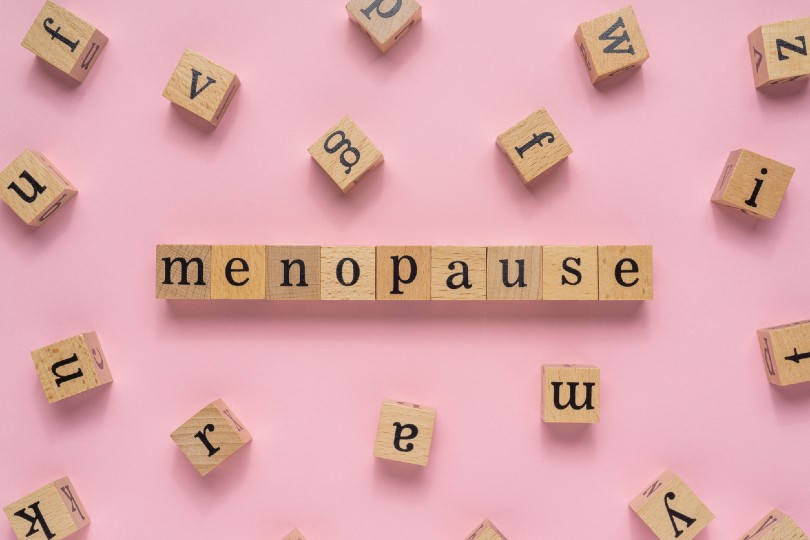'Why travel firms must do more to support women'
 Lindsay Garvey-Jones
Lindsay Garvey-JonesInternational Women’s Day (8 March) is a fitting date to remind us of the challenges faced by those who identify as women, and what more we can do to support them.
One key issue is that of menopause. Given more than half the world’s population will go through it, the lack of discussion around this topic has, until recent years, been shameful.
However, in the five months since World Menopause Month last October, there seems to have been a step change. Finally it seems discussions around the menopause have made it into mainstream media. But is this simply a phase, an attempt by companies to ensure they’re seen to be embracing the topic du jour?
There are certainly companies cashing in – from scented candles and spa weekends to magnetic knickers (yes, really) and mindfulness “moons” providing weekends away, the menopause has created somewhat of a gold rush. None of this, though, should be deemed wholly negative. How refreshing, after all, that menopause is finally having its moment.
It’s less easy, however, for those more interested in research than making a quick buck. With so much information just a Google search away, understanding the myriad material on the menopause can be a minefield.
Menopausal women are the fastest-growing demographic in the workforce, according to a government report on Menopause. So why do businesses not offer support for their employees going through this process?
Sadly, I believe the answer lies in the fact that for all the progress made, the topic of menopause remains an uncomfortable one, no matter the sector. And from conversations I’ve had with those who identify as female, it seems travel is no exception. There is a fear of being judged, misunderstood, scrutinised, unsupported or unprotected.
It’s for this reason that Travel Talks Menopause was launched. Created by Silversea’s Julie Nunes and me, we wanted to introduce the travel industry to menopause experts who can offer advice, recommend podcasts and ultimately provide authentic evidence-based information so that everyone, regardless of gender or age, is able to access crucial knowledge from a central place.
Currently menopause isn’t a protected characteristic under UK Equality laws (unlike LGBT, gender and race). This though, could soon change, with many expecting UK legislation to be introduced within the next 12 months which would protect those facing discrimination because of menopause.
And experts are urging companies to get ahead of the curve. Research suggests more than half of UK businesses (54%) do not currently have any dedicated menopause support in place within their organisation. This includes practical and emotional support for employees to help manage their symptoms and quality of life.
’There are still taboos’
Dr Mridula Pore, CEO of staff support advisory organisation Peppy, points out: “In an ideal world, employees would ask their employers to provide better support, but we know that while menopause is becoming much more openly discussed, there are still taboos in the workplace. Employers should not wait to be approached by their staff – they need to lead the discussion that it is OK to have symptoms and to ask for support at work.”
The travel industry has yet to embrace the topic of menopause in full, but wouldn’t it be wonderful if our sector took the helm and became pioneers – if travel firms followed the likes of Asos, John Lewis, Tesco, Sainsbury’s and Royal Mail and undertook commitments to make positive and effective changes to protect and support those who are suffering with symptoms. That really would be a fitting way to mark International Women’s Day.
How your business can make a positive change
On International Women’s Day, I urge you to consider how you and your company can introduce initiatives to support those who identify as female:
- Establish an employee resource group – there will be someone within your business who would love the opportunity to become a champion for menopause, equality, mental health, LGBTQIA+, etc. Allow them to flourish by setting up an effective workplace policy with your HR/People team. Travlaw are available to assist with this from a legal angle.
- Create an intranet page within your business to aid anyone who is looking for information from experts and professionals, using links such as:
– Menopause Matters
– Balance-Menopause (Dr Louise Newson)
– The British Menopause Society
– Travel Talks Menopause Instagram
– TTG Media Get Travel Talking mental health hub - Create forums in the workplace to establish a safe space for people to talk freely and openly. Encourage male allies to join those open sessions and be inclusive to all ages – education is key. Host closed sessions for women only and those who identify as women.
- Make sure that there is visibility around the workplace on championing menopause and equality, such as in bathrooms, canteens and kitchens. And encourage conversation but be mindful that not everyone will want to talk freely.
- Call out, graciously, any banter, jokes and comments that are no longer appropriate or make others feel marginalised.
As we start to recruit for a huge raft of vacancies across the industry, we must put into action the simple things we can do right away to attract talent and to retain the talent we have.
One in eight women in the UK are currently going through menopause, and a 2019 menopause survey by Bupa and the CIPD found the lack of support offered to menopausal women resulted in 900,000 of them leaving their jobs over an undefined period of time.
When these women leave, they take with them years of experience, professionalism, creativity and innovation – the very things we need to retain as we rebuild this industry and ensure our recovery from the pandemic is a strong one.
Lindsay Garvey-Jones is national retail manager at Holiday Extras.
Join the latest Travel Talks Menopause event on March 10 at 10am.
International Women's Day 2022
- Lindsay Garvey-Jones: 'Why travel firms must do more to support women'
- Women in Travel urges industry to 'recognise and support important work'
- Lydia Amoah: 'Travel needs more inclusive recruitment of women'
- Celebrity Cruises' bridge team now one-third female
- Latifa Benaissa: 'I'm proud to be changing women's lives in my country'
- Insight Vacations launches women's-only Iceland tour
Sign up for weekday travel news and analysis straight to your inbox

Lindsay Garvey-Jones
Supplier Directory
Find contacts for 260+ travel suppliers. Type name, company or destination.













